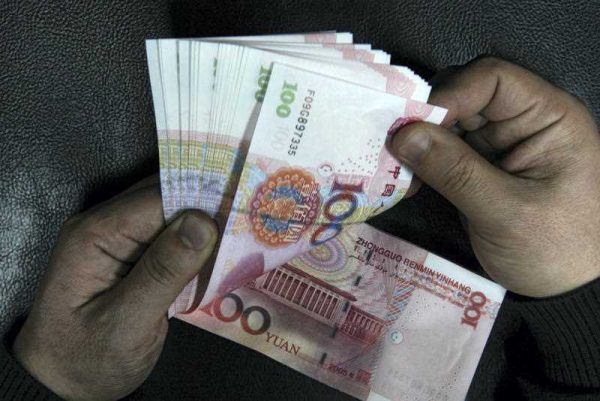A bigger AIIB does not necessarily mean a better one. Beijing must prepare to play an institutional game with other members inside the AIIB.
More members — especially from developed countries — will dilute China’s influence inside the AIIB. China originally held 49 per cent of total capital, making its leadership undisputable. But as more developed economies join as founding members, China’s total capital share will decrease. This opens up the challenge of institutional balancing.
Institutional balancing refers to the diplomatic strategies that allow states to rely on institutions to constrain other members’ power and influence. There are two types of institutional balancing: exclusive institutional balancing and inclusive institutional balancing. The former refers to excluding a target state from the designated institution, and using institutional unity to alienate and pressure the target state. The latter refers to including the target state in the institution, but using the institution’s rules and norms to constrain and shape its behaviour.
The AIIB can be seen as China’s exclusive institutional balancing strategy against the United States. The success of the AIIB might not mean the end of US leadership but it will definitely steal the United States’ thunder in the global financial system. But China will face inclusive institutional balancing efforts from other countries, especially the UK, Germany, France and Australia.
China will not be the one who sets all the rules and norms in the AIIB. The UK joined as a founding member to ‘ensure that the AIIB operates in a transparent way’. It is prepared to say no if the AIIB governance does not meet the ‘high standards of the World Bank and the regional development banks’ — a concern the United States has openly expressed. There will likely be internal fighting between China and other developed countries over agenda-setting, rule-making and decision-making in the AIIB.
While institutional balancing and competition might not be a bad thing for the healthy development of AIIB in the long run, the short-run institutional challenges will test China’s capability for leadership in the global financial system.
The AIIB seems to be part of Xi’s new foreign policy of ‘striving for achievement’, which sets him apart from China’s previous ‘low profile’ policies. The AIIB is closely linked to China’s ‘one belt and one road’ development strategy. This refers to the New Silk Road Economic Belt, which links China with Europe through central and western Asia, and the 21st Century Maritime Silk Road, which connects China with Southeast Asia, Africa and Europe. China has pledged US$40 billion to a Silk Road Fund for the development of ‘one belt and one road’.
But China has not yet declared how the AIIB and the Silk Road Fund interact, nor how the AIIB will coordinate its relations with other multilateral financial institutions such as the Asian Development Bank and the World Bank. The intra-institutional difficulties coupled with potential inter-institutional conflicts might drag China into an endless game of negotiations, bargaining and compromises. This might eventually leave the AIIB inefficient and meaningless. And if the AIIB fails or remains stagnant, China will encounter both reputational damages and economic losses.
China needs to prepare for the potential challenges from other states inside the AIIB. It should invite experts from leading financial and economic institutions to set up agendas, rules, procedures and even norms according to mutually agreed international standards. Good governance and transparency is the key to the success of any financial institution. If the AIIB is designed to be an investment bank, China should let the market decide how it operates. China will gain more soft power if it respects the rules, norms and procedures negotiated with other members inside the AIIB.
China will not simply accept what other countries want for the AIIB lying down. But the real test for China’s future leadership in global governance is to find a balance of interests among different parties, especially between rich and poor countries. China should lead the AIIB to work with (rather than against) existing global institutions to enhance infrastructure and boost development in the Asia Pacific. This way, the AIIB will not only fulfil Xi’s ‘Chinese dream’, but also turn the first page of the ‘Asian century’.
Kai He is Associate Professor of Political Science at the University of Copenhagen. He is the author of Institutional Balancing in the Asia Pacific: Economic Interdependence and China’s Rise (2009).
Huiyun Feng is senior researcher at the Danish Institute for International Studies. She is the author of Chinese Strategic Culture and Foreign Policy Decision-Making: Confucianism, Leadership and War (2007).
Kai He and Huiyun Feng co-authored Prospect Theory and Foreign Policy Analysis in the Asia Pacific: Rational Leaders and Risky Behavior (2013).


AIIB is reaction for the failure of world bank and IMF to be more inclusive of China and other developing countries. For China, if they have more influce thanthey do at world bank and IMF, it’s a win, to dominate AIIB is never the goal. It far better to have signifcant but domint influce at a far reaching institution than a dominant influence at a limited institution.